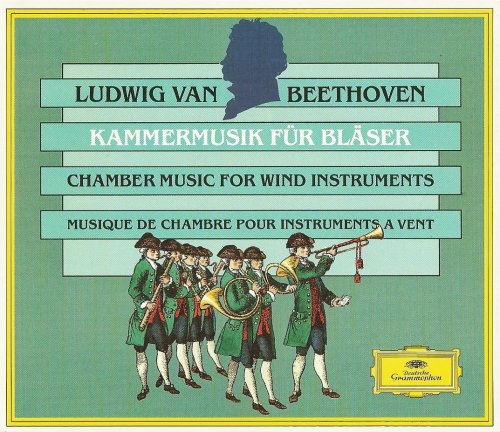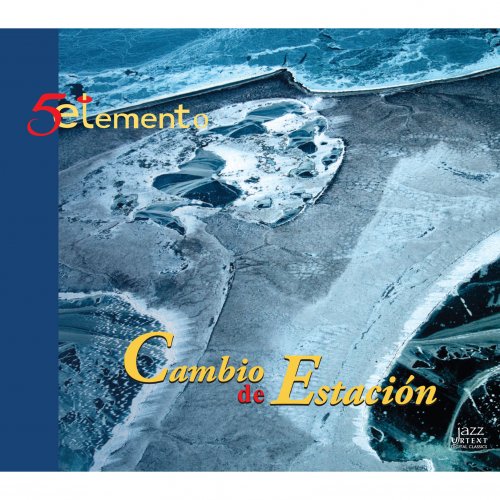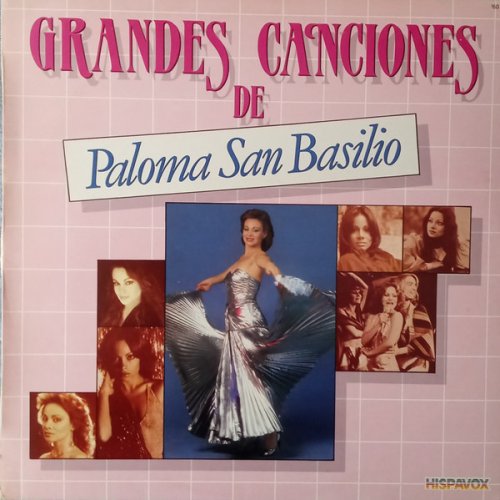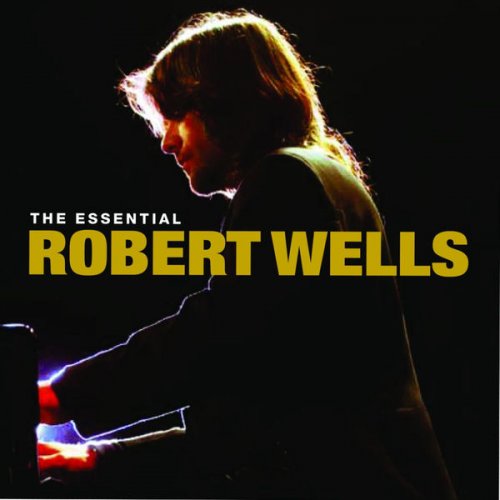VA - Beethoven: Chamber Music for Wind Instruments (2000)

Artist: VA
Title: Chamber Music for Wind Instruments
Year Of Release: 2000
Label: Deutsche Grammophon
Genre: Classical
Quality: FLAC (image+.cue,log,scans)
Total Time: 03:09:11
Total Size: 941 Mb
WebSite: Album Preview
Tracklist: Title: Chamber Music for Wind Instruments
Year Of Release: 2000
Label: Deutsche Grammophon
Genre: Classical
Quality: FLAC (image+.cue,log,scans)
Total Time: 03:09:11
Total Size: 941 Mb
WebSite: Album Preview
CD 1:
01. Sextet for 2 clarinets, 2 horns & 2 bassoons in E flat major, Op. 71- Adagio - Allegro [0:09:33.00]
02. Sextet for 2 clarinets, 2 horns & 2 bassoons in E flat major, Op. 71- Adagio [0:04:26.00]
03. Sextet for 2 clarinets, 2 horns & 2 bassoons in E flat major, Op. 71- Menuetto. Quasi Allegretto [0:02:56.00]
04. Sextet for 2 clarinets, 2 horns & 2 bassoons in E flat major, Op. 71- Rondo. Allegro [0:03:56.00]
05. Trio for piano, flute & bassoon in G major, WoO 37- Allegro [0:07:27.00]
06. Trio for piano, flute & bassoon in G major, WoO 37- Adagio [0:05:09.15]
07. Trio for piano, flute & bassoon in G major, WoO 37- Andante. Tema con variazioni [0:09:43.60]
08. Serenade for flute, violin & viola in D major, Op. 25- Entrada. Allegro [0:03:14.50]
09. Serenade for flute, violin & viola in D major, Op. 25- Tempo ordinario d'un Minuetto [0:04:54.25]
10. Serenade for flute, violin & viola in D major, Op. 25- Allegro molto [0:02:04.00]
11. Serenade for flute, violin & viola in D major, Op. 25- Andante con variazioni [0:05:37.00]
12. Serenade for flute, violin & viola in D major, Op. 25- Allegro scherzando e vivace [0:01:49.50]
13. Serenade for flute, violin & viola in D major, Op. 25- Adagio - Allegro vivace e disinvolto [0:04:34.25]
CD 2:
01. Sextet for 2 horns & string quartet in E flat major, Op. 81b- Allegro con brio [0:07:50.00]
02. Sextet for 2 horns & string quartet in E flat major, Op. 81b- Adagio [0:04:36.00]
03. Sextet for 2 horns & string quartet in E flat major, Op. 81b- Rondo. Allegro [0:04:55.00]
04. Sonata for horn & piano in F major, Op. 17- Allegro moderato [0:08:29.00]
05. Sonata for horn & piano in F major, Op. 17- Poco Adagio, quasi Andante [0:01:31.08]
06. Sonata for horn & piano in F major, Op. 17- Rondo. Allegro moderato [0:05:08.67]
07. Octet for winds in E flat major, Op. 103- Allegro [0:07:56.00]
08. Octet for winds in E flat major, Op. 103- Andante [0:06:50.00]
09. Octet for winds in E flat major, Op. 103- Menuetto [0:03:44.00]
10. Octet for winds in E flat major, Op. 103- Finale. Presto [0:03:47.00]
CD 3:
01. Quintet for piano, oboe, clarinet, horn & bassoon in E flat major, Op. 16- Grave - Allegro, ma non troppo [0:13:20.00]
02. Quintet for piano, oboe, clarinet, horn & bassoon in E flat major, Op. 16- Andante cantabile [0:07:11.00]
03. Quintet for piano, oboe, clarinet, horn & bassoon in E flat major, Op. 16- Rondo. Allegro, ma non troppo [0:05:44.00]
04. Septet for strings & woodwinds in E flat major, Op. 20- Adagio - Allegro con brio [0:09:48.00]
05. Septet for strings & woodwinds in E flat major, Op. 20- Adagio cantabile [0:10:13.00]
06. Septet for strings & woodwinds in E flat major, Op. 20- Tempo di Menuetto [0:03:55.00]
07. Septet for strings & woodwinds in E flat major, Op. 20- Andante. Tema con Variazioni [0:08:01.00]
08. Septet for strings & woodwinds in E flat major, Op. 20- Scherzo. Allegro molto e vivace [0:03:20.00]
09. Septet for strings & woodwinds in E flat major, Op. 20- Andante con moto alla Marcia - Presto [0:07:26.00]
Performers:
members of the Berliner Philharmoniker
members of the Philharmonischen Oktetts Berlin
Drolc-Quartett
Aloys Kontarsky - piano
Jörg Demus – piano
The Beethoven wind music is, happily, already well represented in the catalogues. None of the pieces listed above has needed the help of the composer's bi-centenary to achieve a recording; and only, I believe, the doubtfully attractive Trio for piano, flute and bassoon is not otherwise at present available. Indeed the catalogues go better than this, producing in addition to the above list the Duos for clarinet and bassoon, the Trio for two oboes and cor anglais (both of these a happier sound than you might think), the Trio for piano, clarinet and cello, the Octet Rondino, and some flute oddities perhaps most likely to appeal to connoisseurs of that instrument. Nevertheless this new indivisible anthology does include much of the whole, and it does include it in a high quality of recording: tone and clarity alike are excellent throughout, and the variations in level—quite sharp ones—that do occur do so only from one work to another, never within the same work.
There is, too, a uniformly high standard of performance, a happy event guaranteed anyway by the recurrent "members of the Berlin Philharmonic" legend above: for in this orchestra reside some of the smoothest wind players of the world. Their particular virtues are exhibited straight away in the Octet. Round-toned oboes, smooth-toned and vibrato-less clarinets, deadly accurate and not over-recorded horns, and full circle back to round-toned bassoons: there is not much safer a recipe for good wind blend than this. Nor much likelihood of hearing a substantially better performance of the Octet as a whole: one of more attack, possibly, but only at the expense of some of the refinements of the gentle, winning style the players have adopted. Similar virtues invest the Sextet for clarinets, horns and bassoons; with here the absence of even the velvety Berlin oboe-tone noticeably contributing to such an overall smoothness of sound.
Internal balance is good, too, in the Quintet with piano. The pianist added to the wind players is here Jorg Demus. He fits well, but not quite perfectly, into the prevailing style; he is both a little more alert in his playing and a little more romantic—in solo passages—in the momentary ebb and flow of his pulse. The effect may be in place in a concerto (where the differences, such as they are, of solo style and orchestral style are exactly what is under discussion), but is not really in place in chamber music; nevertheless I certainly don't wish to exaggerate its effect. Nor, by mentioning it as a curiosity, to exaggerate the importance of a very odd pianistic contribution to the Horn Sonata: one wrong and ungrammatical bass note played firmly and obviously intentionally. The bass is often in mind, for it is, as it happens, rather underrecorded here, given insufficient weight and warmth for the superstructure. But it is a splendid superstructure, Demus partnering effectively Seifert's most accomplished horn playing.
Seifert in fact plays principal horn throughout the programme. I have already mentioned the 'deadly accuracy' of his team, a virtue of good horn-playing now normally to be taken for granted (though not, some of our senior readers will remember, always in earlier days). One place, however, where this accuracy is often, even nowadays, under strain is towards the end of a movement where so regularly, in chamber music, Beethoven enjoys himself by writing an exposed, inescapable, and distinctly exacting arpeggio (sometimes a scale) for his first horn. I hate to think what Beethoven, as a fourteenth-study horn player, must have sounded like essaying these purple patches himself (if he ever did); but I think he would have been spellbound hearing Seifert in them. Or, in the Sextet for two horns and strings, Seifert and Klier: indeed their sudden vertical take-offs are perhaps the most winning features of this possibly spurious work, the more especially as the strings have been recorded with something of an edge to their tone.
On the final disc Seifert takes a well-earned rest; and it may be that here and there, so will a listener's ready enjoyment, for though the early Trio for piano, flute and bassoon is given a good performance (and a good recording which certainly restores the previously missing weight to the piano's bass) it could nevertheless not be said to be among Beethoven's best works. But the flute, violin and viola Serenade is in different case, for though only doubtfully among the 'best' it could most certainly be ranked among Beethoven's most charming pieces; and in a composer noted for many characteristics idyllic, lightweight charm is not all that often among them. Here all agile flute-player and a particularly warm-toned viola player help it along in great style. A buyer wondering whether these are, in total, the pieces he really wants must be stony-hearted indeed if he finds he cannot add, at the very least, this Serenade to the Septet which must be already on his surreptitious list of Sunday-afternoon music. And if it should be the Septet itself that he wants, then this too receives here a velvety performance.
There is, too, a uniformly high standard of performance, a happy event guaranteed anyway by the recurrent "members of the Berlin Philharmonic" legend above: for in this orchestra reside some of the smoothest wind players of the world. Their particular virtues are exhibited straight away in the Octet. Round-toned oboes, smooth-toned and vibrato-less clarinets, deadly accurate and not over-recorded horns, and full circle back to round-toned bassoons: there is not much safer a recipe for good wind blend than this. Nor much likelihood of hearing a substantially better performance of the Octet as a whole: one of more attack, possibly, but only at the expense of some of the refinements of the gentle, winning style the players have adopted. Similar virtues invest the Sextet for clarinets, horns and bassoons; with here the absence of even the velvety Berlin oboe-tone noticeably contributing to such an overall smoothness of sound.
Internal balance is good, too, in the Quintet with piano. The pianist added to the wind players is here Jorg Demus. He fits well, but not quite perfectly, into the prevailing style; he is both a little more alert in his playing and a little more romantic—in solo passages—in the momentary ebb and flow of his pulse. The effect may be in place in a concerto (where the differences, such as they are, of solo style and orchestral style are exactly what is under discussion), but is not really in place in chamber music; nevertheless I certainly don't wish to exaggerate its effect. Nor, by mentioning it as a curiosity, to exaggerate the importance of a very odd pianistic contribution to the Horn Sonata: one wrong and ungrammatical bass note played firmly and obviously intentionally. The bass is often in mind, for it is, as it happens, rather underrecorded here, given insufficient weight and warmth for the superstructure. But it is a splendid superstructure, Demus partnering effectively Seifert's most accomplished horn playing.
Seifert in fact plays principal horn throughout the programme. I have already mentioned the 'deadly accuracy' of his team, a virtue of good horn-playing now normally to be taken for granted (though not, some of our senior readers will remember, always in earlier days). One place, however, where this accuracy is often, even nowadays, under strain is towards the end of a movement where so regularly, in chamber music, Beethoven enjoys himself by writing an exposed, inescapable, and distinctly exacting arpeggio (sometimes a scale) for his first horn. I hate to think what Beethoven, as a fourteenth-study horn player, must have sounded like essaying these purple patches himself (if he ever did); but I think he would have been spellbound hearing Seifert in them. Or, in the Sextet for two horns and strings, Seifert and Klier: indeed their sudden vertical take-offs are perhaps the most winning features of this possibly spurious work, the more especially as the strings have been recorded with something of an edge to their tone.
On the final disc Seifert takes a well-earned rest; and it may be that here and there, so will a listener's ready enjoyment, for though the early Trio for piano, flute and bassoon is given a good performance (and a good recording which certainly restores the previously missing weight to the piano's bass) it could nevertheless not be said to be among Beethoven's best works. But the flute, violin and viola Serenade is in different case, for though only doubtfully among the 'best' it could most certainly be ranked among Beethoven's most charming pieces; and in a composer noted for many characteristics idyllic, lightweight charm is not all that often among them. Here all agile flute-player and a particularly warm-toned viola player help it along in great style. A buyer wondering whether these are, in total, the pieces he really wants must be stony-hearted indeed if he finds he cannot add, at the very least, this Serenade to the Septet which must be already on his surreptitious list of Sunday-afternoon music. And if it should be the Septet itself that he wants, then this too receives here a velvety performance.


![Sonny Stitt - A Tribute To Duke Ellington (With Strings) (2026) [Hi-Res] Sonny Stitt - A Tribute To Duke Ellington (With Strings) (2026) [Hi-Res]](https://www.dibpic.com/uploads/posts/2026-01/1768738436_cover.jpg)

![Lisa Wulff - Hand auf's Herz (2026) [Hi-Res] Lisa Wulff - Hand auf's Herz (2026) [Hi-Res]](https://www.dibpic.com/uploads/posts/2026-01/1768411553_s43xhxlo3nlcc_600.jpg)

![Eddie Harris - For Bird and Bags (2026) [Hi-Res] Eddie Harris - For Bird and Bags (2026) [Hi-Res]](https://www.dibpic.com/uploads/posts/2026-01/1768382143_xbb15jgw3ltow_600.jpg)

